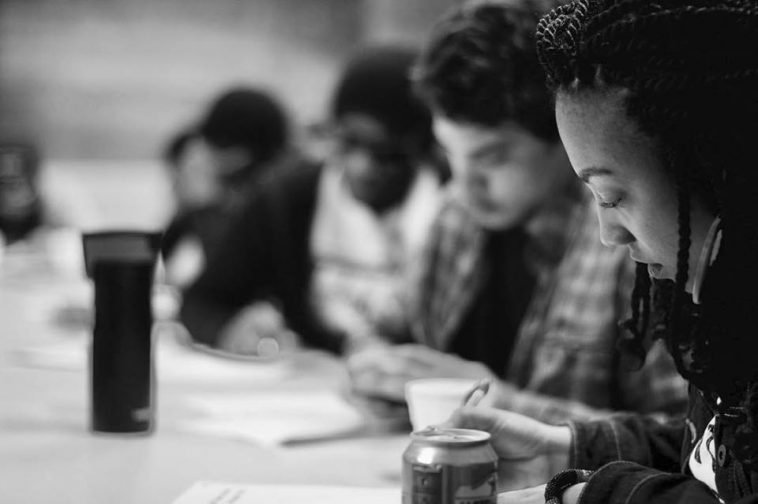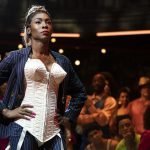Black Art Deserves Criticism, Too
True diversity will be achieved when black creators have room to fail
Lena Waithe made headlines last month after calling out Hollywood’s black elite (e.g. Will Smith and Denzel Washington, among others) for not financing small- or mid-budget black films. The controversy led many readers to overlook another poignant observation in that same article. When asked about other issues in Hollywood that concerned her, Waithe spoke frankly about pressure in the black community to support films, even if they aren’t good. “A lot of bad black movies get good reviews because white critics are afraid to pan them,” she said. “We still feel this guilt of, ‘Go support this movie because there’s black folks in it’.” And she’s absolutely right.
In a sense, we’re experiencing a black renaissance in popular culture, one in which thoughtful creators like Waithe, Barry Jenkins, Jordan Peele, and Ryan Coogler, to name a few, are finding both critical and commercial success with expertly crafted stories rooted in blackness. However, not every black creator is producing this standard of work, and quite often, the aim of the renaissance seems to be more focused on representation than an elevation of black art.
There’s an unspoken understanding in the black community that, if you don’t support a project by a black artist, you’re essentially turning your back on your people. But this is an unfair characterization because not every black film or TV show is created equal. The most recent Shaft sequel was not a cinematic achievement meant to push black art to new heights; it was a desperate cash grab, and its appeal was wholly based on Samuel L. Jackson dropping f-bombs. In stark contrast, Peele’s Us was an ambitious and challenging film that showed a horror auteur further harnessing his skill and establishing himself as a formidable filmmaking force. If you support one but not the other, are you sabotaging Black Hollywood?
For those critics who dare to speak up, that seems to be the case.
New York Times culture critic-at-large Wesley Morris became the scourge of Black Twitter last year when he expressed his dislike for Insecure in a much-debated culture essay. In the piece, Morris shared with a friend that he didn’t find Issa [played by Issa Rae] believable and thus didn’t enjoy the show. His friend was immediately triggered and defended Rae’s work. Morris implied that his friend defended Insecure not because of its artistic merit but because it was a prominent show created by and starring a black woman.
I understand both points. It’s exciting and promising to see a dramedy about black imperfection and realism made with an HBO budget, and the first two seasons were electric, effectively touching on aspects of black life and friendship that are seldom seen on mainstream television. But that doesn’t make it perfect. Season three missed the opportunity to explore the conflict between its four female leads more closely; it pandered to Twitter by bringing Lawrence back; and it skimmed over black mental health, equating serious depression with ghosting.
But I wouldn’t dare express that viewpoint on social media because Rae and Insecure are beloved and anything less than glowing praise is simply not tolerated. And that’s a problem. Like any other art, black art deserves criticism, too. There should be room for praise and critique. Are we truly equal and represented in film and TV if we expect universal praise simply for showing up? Is that what we want?
We have to bring more nuance to our discussion of black shows and movies. When a journalist like Morris, or even a writer like myself, critiques a piece of black art, the intent is not to trash it or stop it from being successful; the criticism serves as a catalyst to elevate the community’s taste and drive creators to produce stronger and more resonant work. True criticism doesn’t turn a blind eye to imperfection. It fosters a two-sided conversation that helps us understand the power and the shortcomings of the work we love.
One way we might add more nuance to the black critical discussion is through stronger representation in criticism. 82% of critics are white, which means the greater discussion about our art is not being filtered through our point of view. The wider the spectrum of critics, the more varied the experiences to inform interpretations of a show or film. It’s certainly honorable that Black Twitter wants to uplift every piece of black art without exception, but a bigger black critical community wouldn’t be afraid to debate the quality or impact of a work.
And despite gains in recent years, diversity is still an uphill battle in Hollywood. If more of our stories were represented on screens, there would be more for us to debate. With only a handful of notable black directors and series with majority-black casts, we feel that we have to universally support these shows because a lack of response could cause them to fail. If they fail, studios and networks will be apprehensive about investing in more black stories, and the gains that we’ve made will stop.
But this fear is unwarranted. Bad reviews don’t always stop black films from making bank. Just look to Tyler Perry for proof. A Madea Family Funeral has a dismal 12% Rotten Tomatoes rating but made almost $75 million (on a $20 million budget). Perry is a filmmaker who creates work for a very specific audience, and that audience is a loyal one, despite the critical debate about the work they’re supporting.
Perry’s work shows that black art can prevail even when a critical discussion doesn’t revolve around universal praise. His work shows that black artists can make work that’s disliked and still succeed.
This moment requires us to use a similar lens for all work by black artists. We have to be truthful and fearless in our consumption. We have to realize that it’s okay to dislike a piece of black art. In fact, in so doing, we’re helping representation in ways that are more meaningful. We’re showing that black artists have room to fail. And when the community realizes that, we will have truly arrived.


